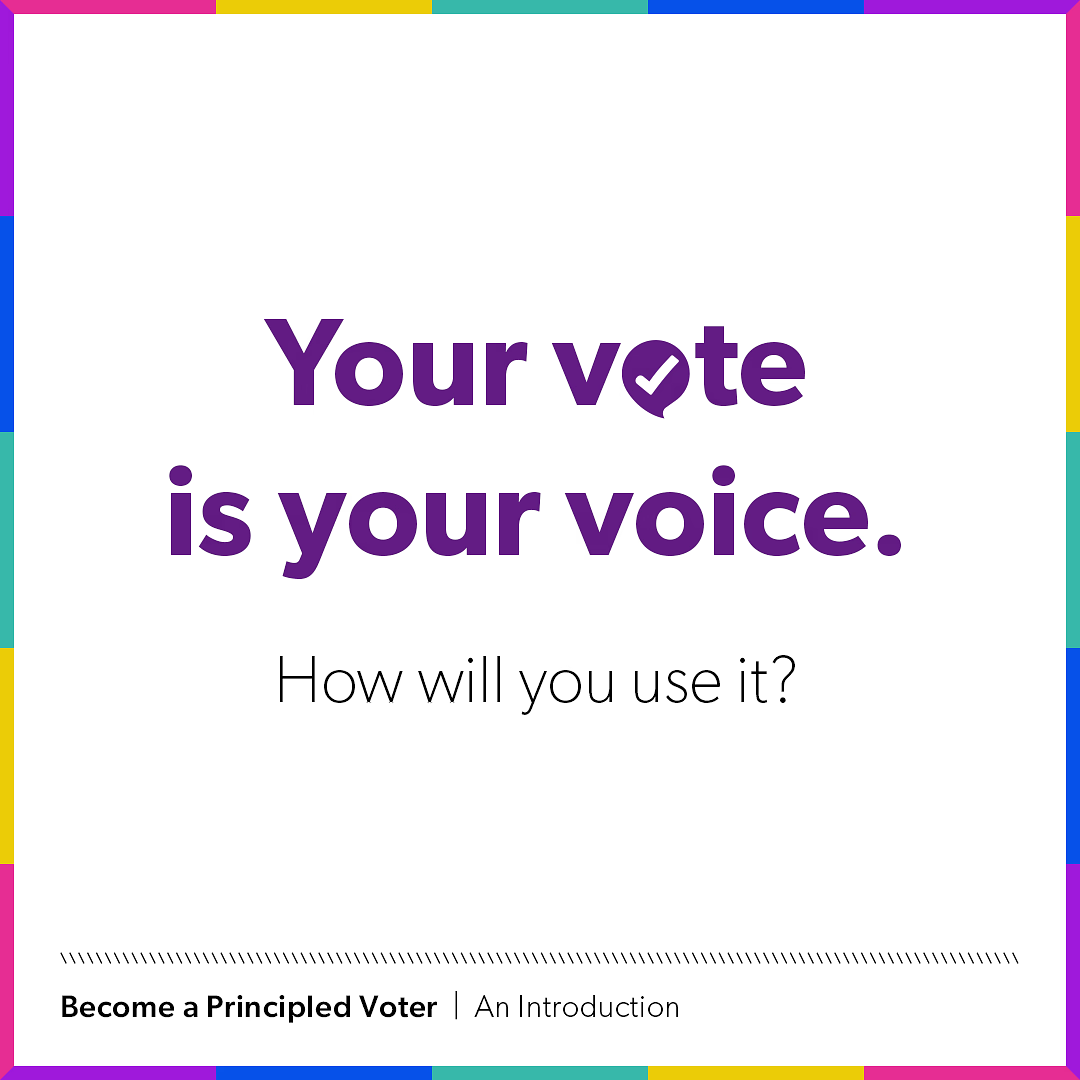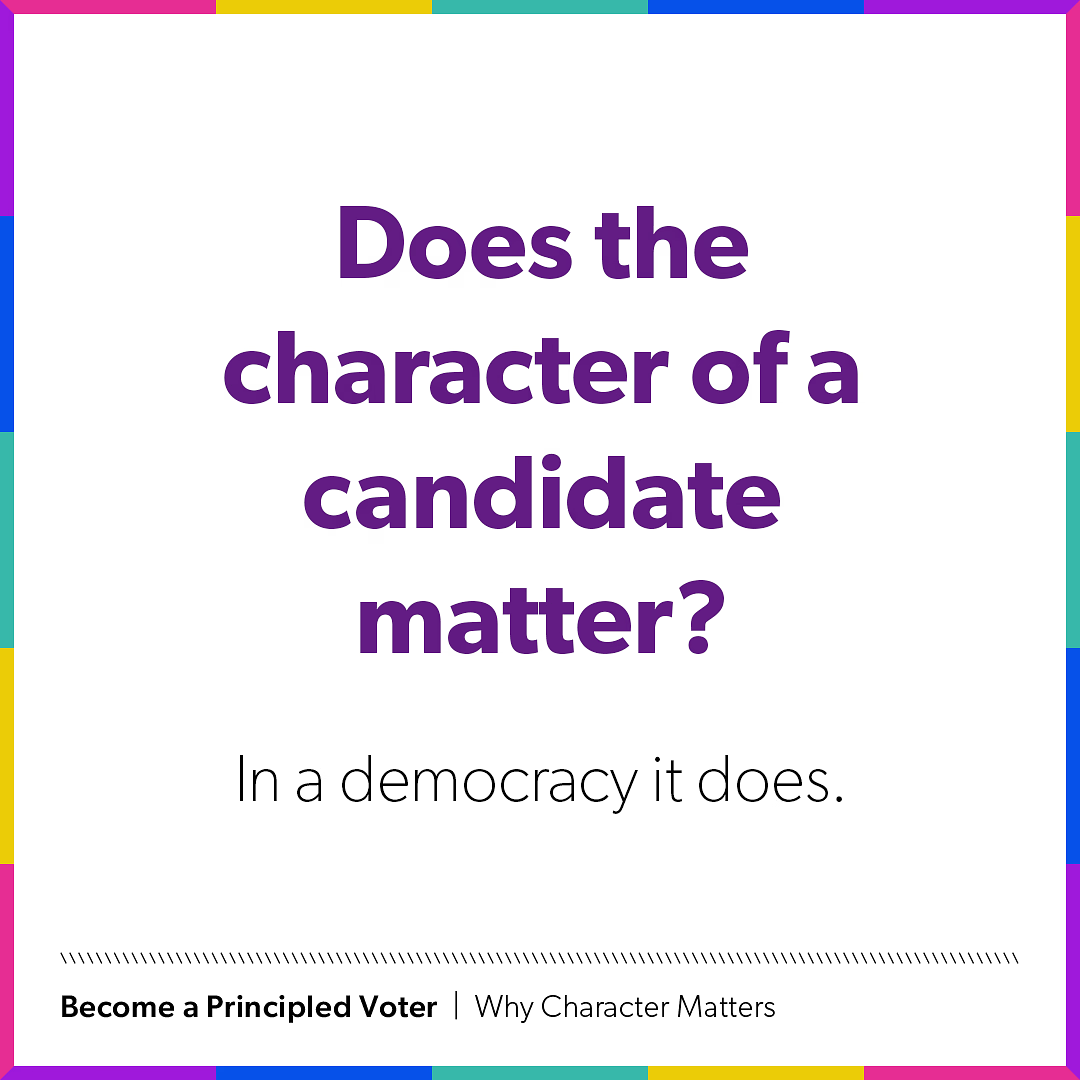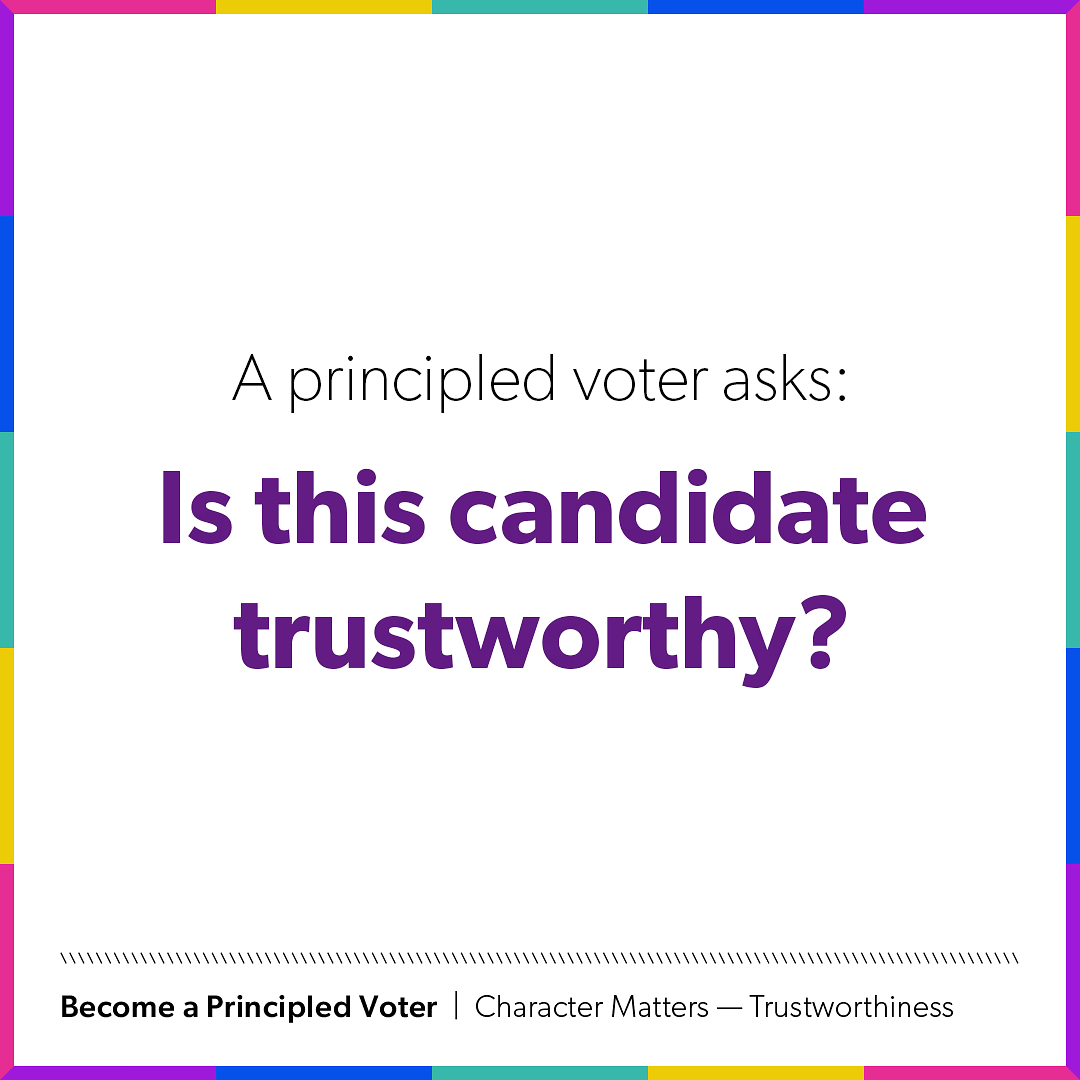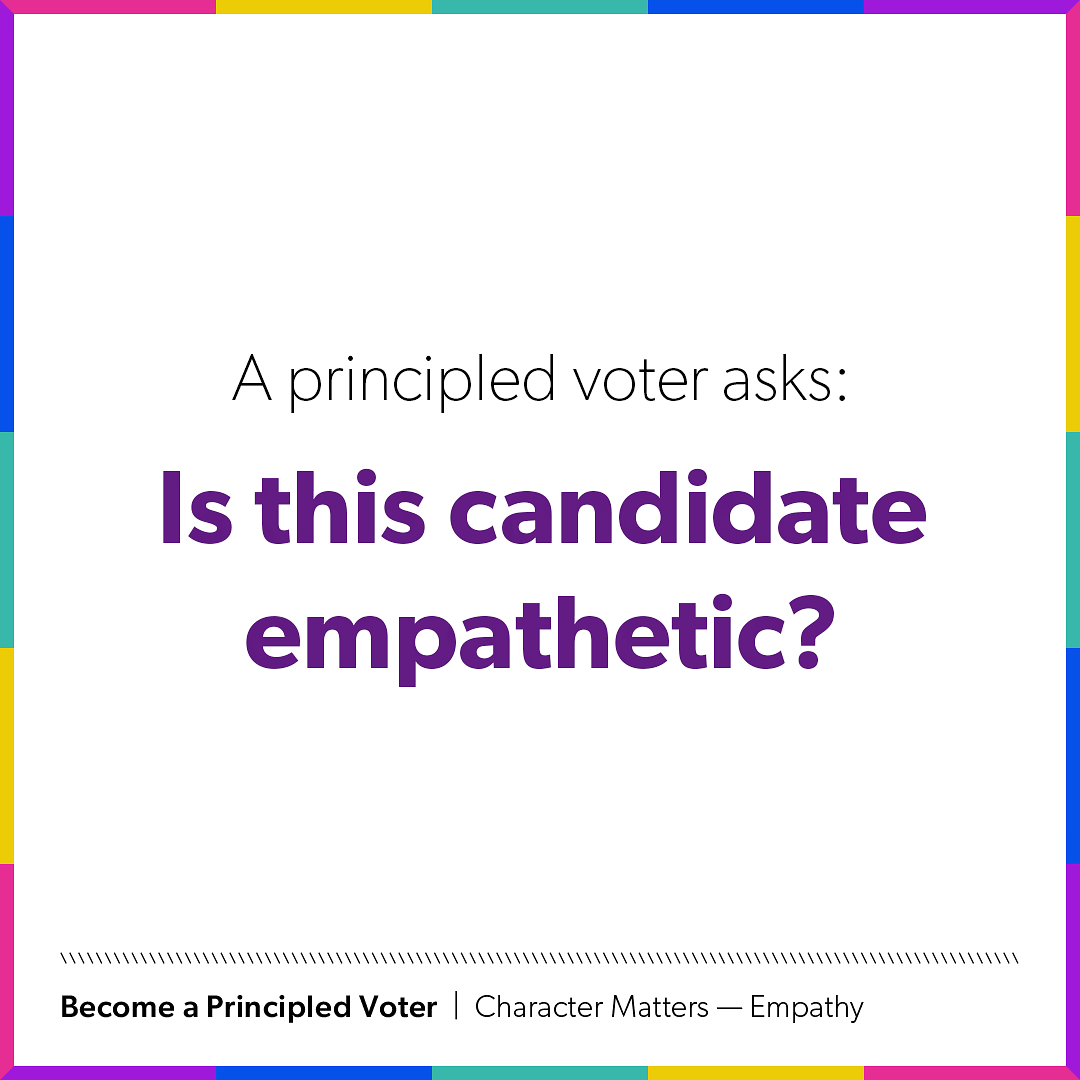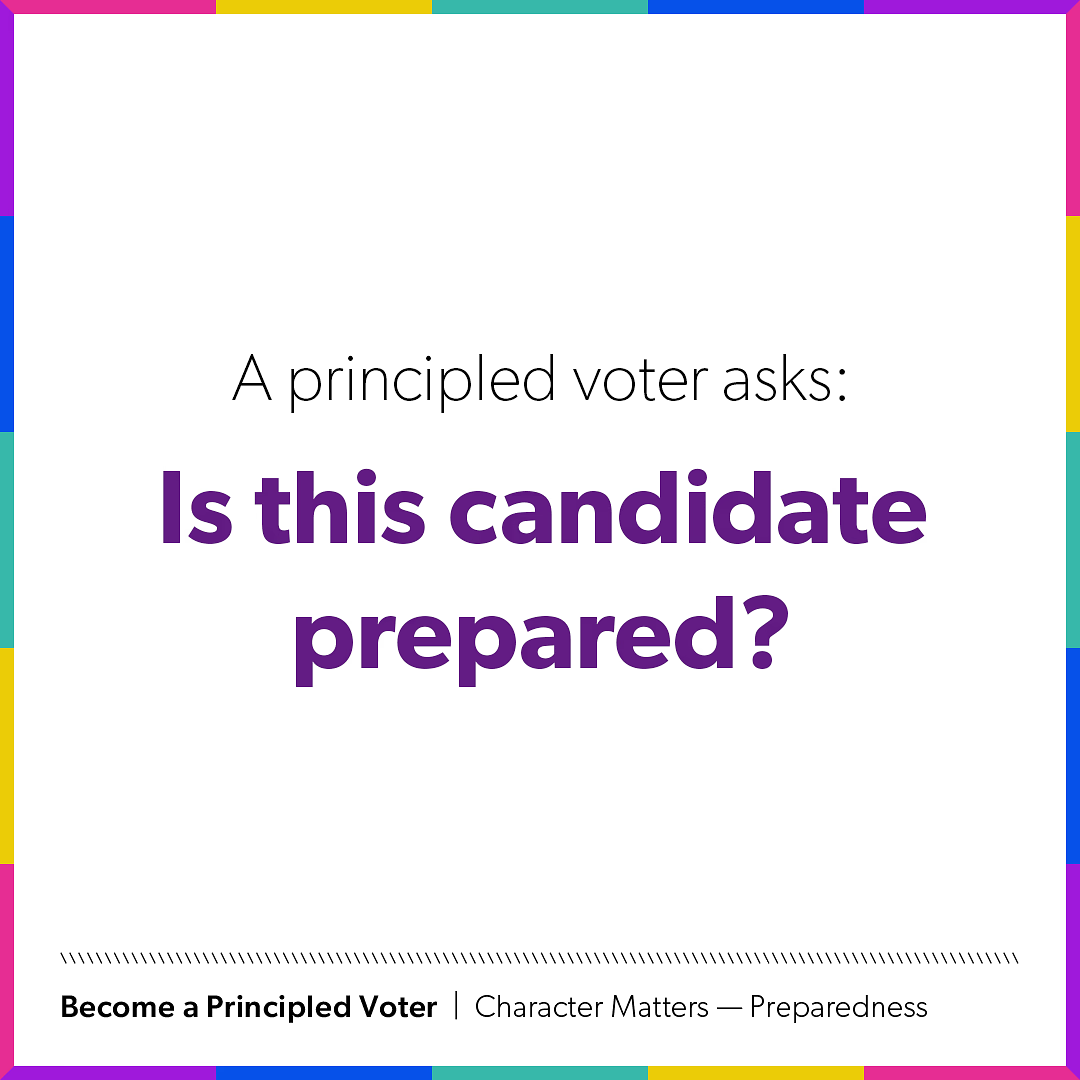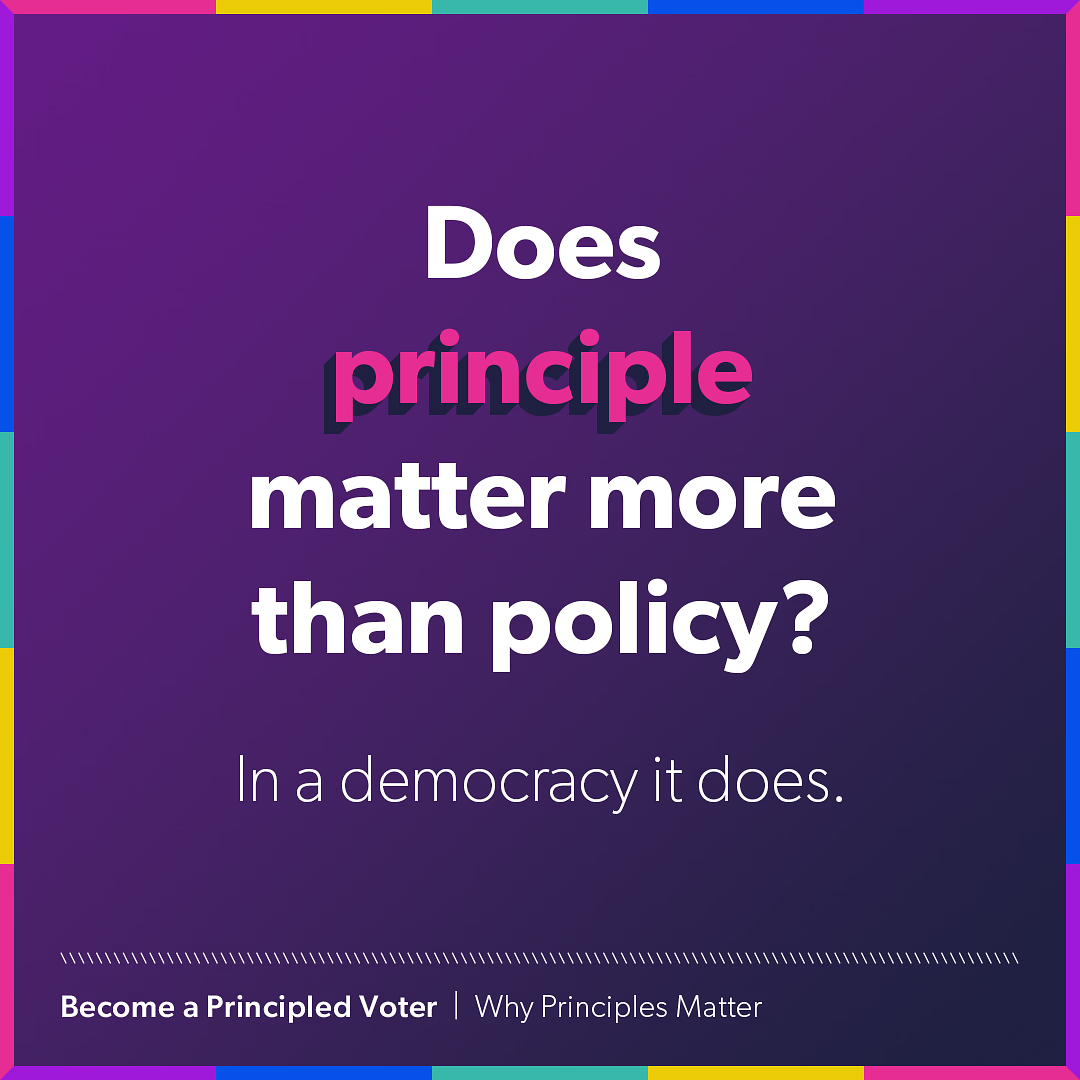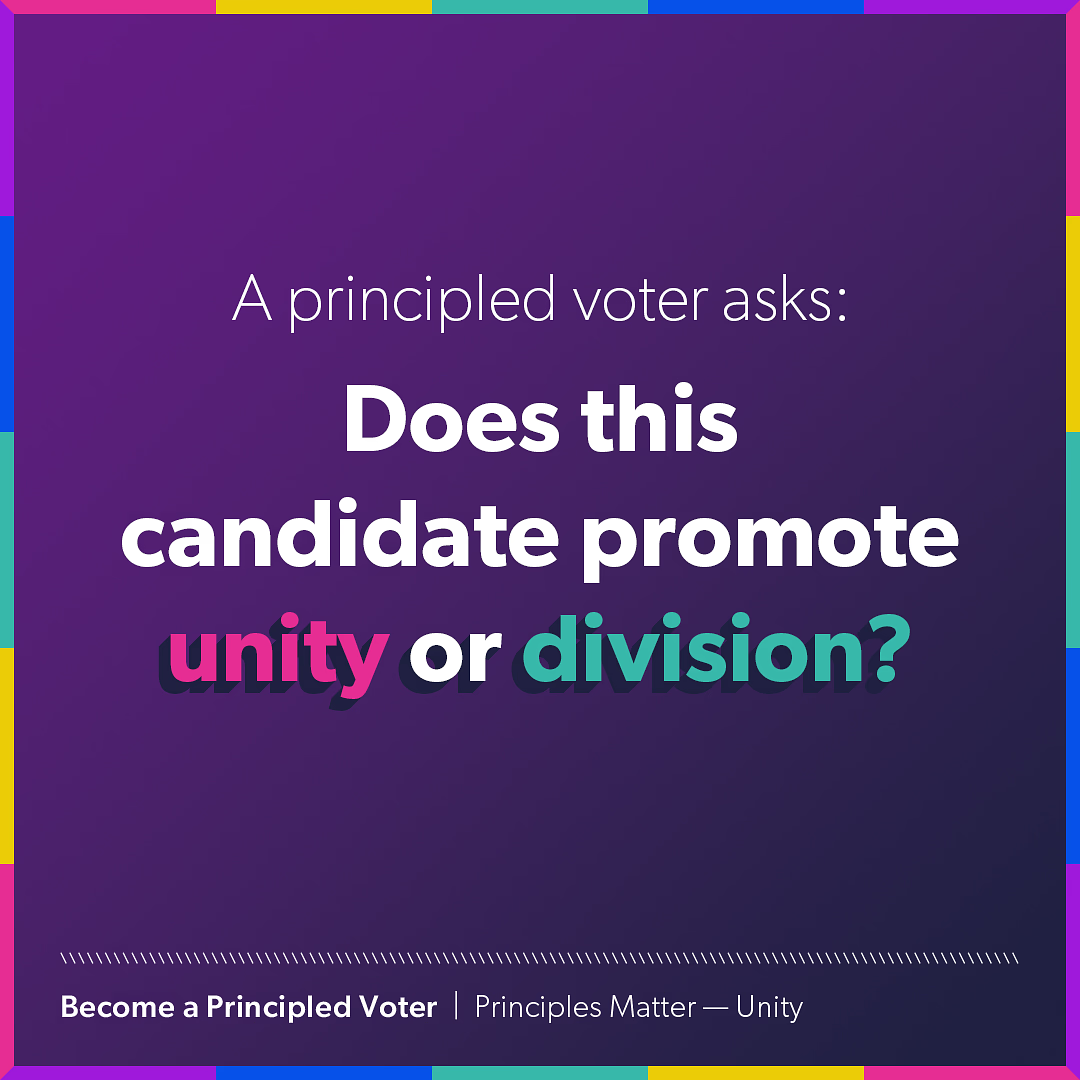
Your Vote Is Your Voice — How Will You Use It?

This article is part of our Principled Voter series.
Your vote is your voice. How will you use it?
You’ve got a lot on your plate — family, finances, work, community involvement, and more! And when you add nonstop news on top of all that, it’s no wonder the majority of Americans outsource their vote to political parties. While more than 40% of voters consider themselves independent, only 4% of registered voters in 2020 said they planned to vote a split ticket, meaning they’d vote for candidates from more than one party.
So how independent is your vote, really?
Your vote says something about what you value, and it should be as personal and multifaceted as you are. While you may feel overwhelmed by the options, you’re already well equipped to meet this moment, and you don’t have to get sucked into a 24-hour news cycle to do it.
First, think about your own values. What issues are most important to you personally? What do you want for our country more than anything in this moment? Try to drown out the noise of what political pundits or parties might tell you to focus on. What problems are the most critical to fix right now?
Next, decide what kind of person we need to take us there. Think of leaders and mentors in your own life who you trust. What traits do they have, and why do you trust them? Do you see these same traits in any of the candidates on your ballot?
Finally, consider what makes a great partner. What is democracy if not a partnership between the people and those they elect to govern? Are we doing our part to think critically about what we need and asking why others might think differently? Will the partners we elect give us greater access to vote, make space to hear us, work to elevate voices that have long been overlooked, and then follow through?
Each vote is an expression of hope for the future. When we vote based on shared national principles, rather than purely partisan platforms, we shift the political power imbalance from parties back to the people. We send the message that we would rather have unity, equality, a robust democracy, and freedom than any other promised policy.
A principled voter asks:
- What problems are most critical for our country to fix now?
- What policies have the potential to do the most good?
- Will my vote harm others or leave them behind?
- What character traits do I want our country to be known for and our leaders to emulate?
Don’t outsource your vote to political parties, influencers, or even friends and family. Your vote is your voice — an expression of your hopes. It’s time to speak up.
Ready to learn why character and principles matter in the candidates on your ballot? Each of these graphics will lead you to more information about how to become a principled voter.
